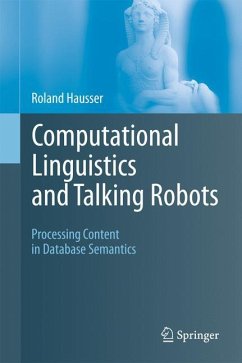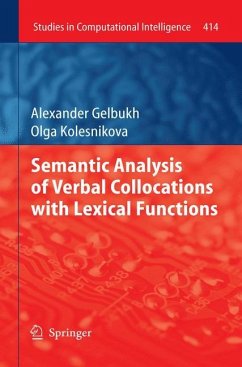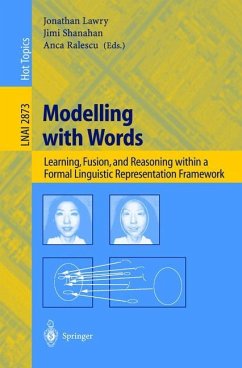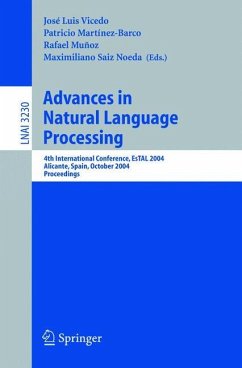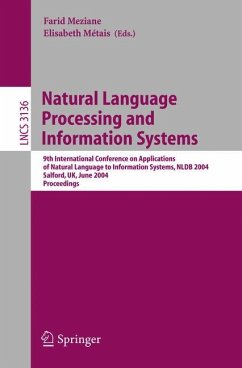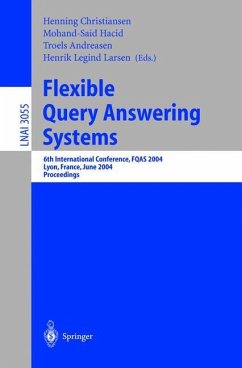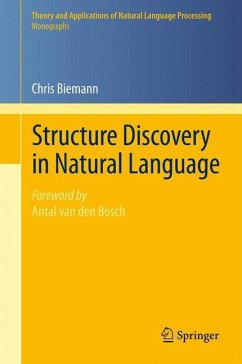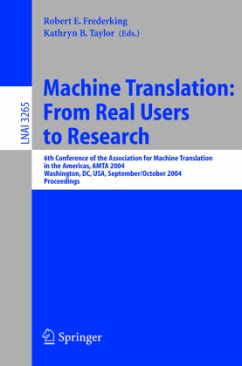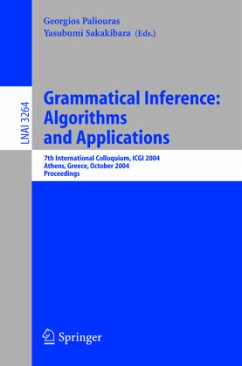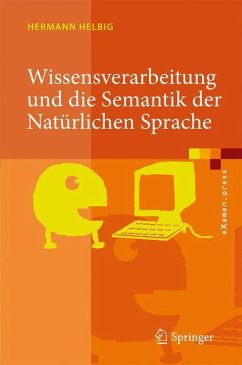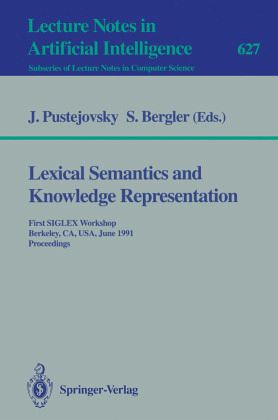
Lexical Semantics and Knowledge Representation
First SIGLEX Workshop, Berkeley, CA, USA, June 17, 1991. Proceedings
Herausgegeben: Pustejovsky, James; Bergler, Sabine
Versandkostenfrei!
Versandfertig in 1-2 Wochen
39,99 €
inkl. MwSt.

PAYBACK Punkte
20 °P sammeln!
Recent work on formal methods in computational lexicalsemantics has had theeffect of bringing many linguisticformalisms much closer to the knowledge representationlanguages used in artificial intelligence. Formalisms arenow emerging which may be more expressive and formallybetter understood than many knowledge representationlanguages. The interests of computational linguists nowextend to include such domains as commonsense knowledge,inheritance, default reasoning, collocational relations, andeven domain knowledge. With such an extension of the normalpurview of "linguistic" knowledge, one may q...
Recent work on formal methods in computational lexicalsemantics has had theeffect of bringing many linguisticformalisms much closer to the knowledge representationlanguages used in artificial intelligence. Formalisms arenow emerging which may be more expressive and formallybetter understood than many knowledge representationlanguages. The interests of computational linguists nowextend to include such domains as commonsense knowledge,inheritance, default reasoning, collocational relations, andeven domain knowledge. With such an extension of the normalpurview of "linguistic" knowledge, one may question whetherthere is any logical justification for distinguishingbetween lexical semantics and commonsense reasoning.This volume explores the question from severalmethodologicaland theoretical perspectives. What emerges isa clear consensus that the notion of the lexicon and lexicalknowledge assumed in earlier linguistic research is grosslyinadequate and fails to address the deeper semantic issuesrequired for natural language analysis.





